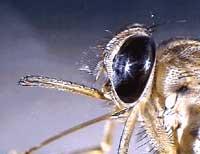Triclosan antibiotic is effective against sleep evil
Sleep disease or trypanosomiasis is the most widespread disease in Africa after AIDS and causes many deaths. The cause of the disease is a parasite, the Trypanosoma brucei, which is transmitted by tse-tse flies. Now, researchers at the Johs Hopskins Institute have shown that the antibiotic in triclosan is able to prevent the reproduction of the parasite. Yes, the test has been done in sessions, so you have to see what happens in living beings.

However, the results are encouraging. This antibiotic is very common and does not produce side effects of arsenic derivatives used in the treatment of the disease.
Researchers are surprised by the effectiveness of the antibiotic, as antibiotics act against bacteria and Trypanosoma brucei is not bacteria. However, it seems that the parasite genome has remnants of bacterial genes and therefore the antibiotic affects it. In fact, the genes used by the parasite in the formation of fatty acids are very similar to those used by bacteria, while those used by yeast and mammals are less similar. According to this, the antibiotic is harmful to the parasite, but does not cause any harm to human cells.
Now in triclla it is being tested if the antibiotic relieves the symptoms of sleep disease and if it serves to treat malaria. In addition, researchers study whether the parasite develops antibiotic resistance.
Buletina
Bidali zure helbide elektronikoa eta jaso asteroko buletina zure sarrera-ontzian











